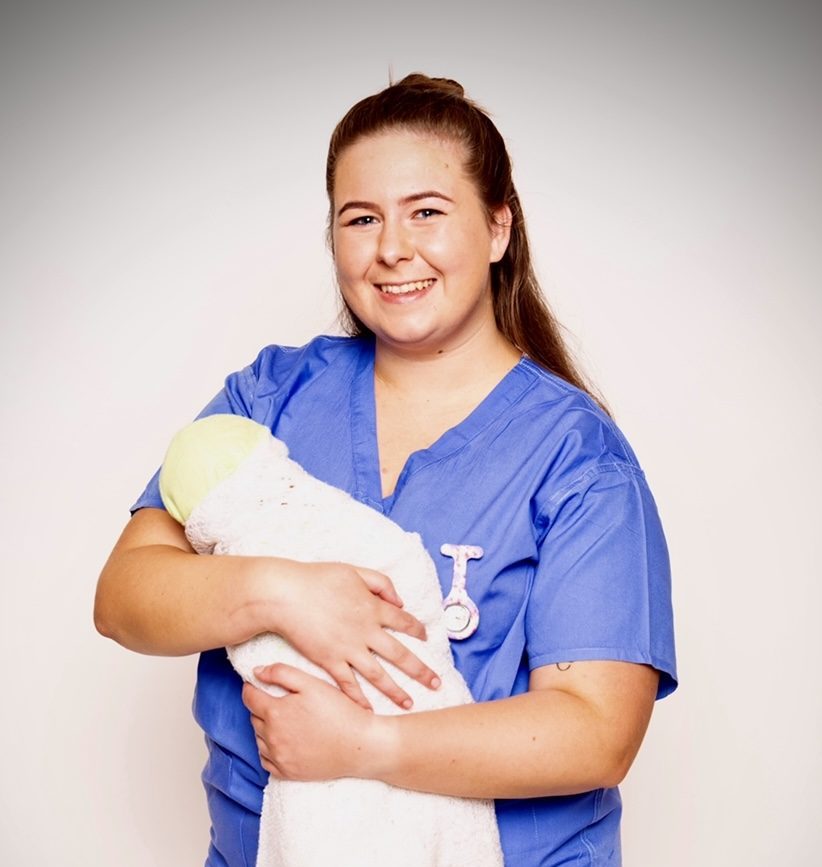The story of Anna
On May 17th ( Also the day of NEC awareness!) 1999 I was born a healthy term+6 baby however I developed NEC soon after birth. NEC is a rare disease but even more rare in term babies, the staff didn’t even believe I had it! I wasn’t feeding and I was going grey in colour, my abdomen distended. I was then rushed to the special care unit and put on antibiotics and x-rays were taken in the hope that this would improve things, the next day I was transferred to the local Children’s hospital in an ambulance and was sent straight into emergency surgery. The affected portion of bowel was removed and I had an ileostomy formed. Alder Hey Children’s Hospital in Liverpool UK saved me even when I had the worst of odds and not many babies had survived. I then spent the first year of my life in hospital and finally got home just before my first birthday whilst still on TPN and a gastrostomy (MIC-KEY button).
I have always asked ‘why me’ and until quite recently I didn’t know what NEC was and why I had to have a Stoma bag. I was determined to experience life without the bag, so I opted to have the ileostomy reversed when I was 13 years old. 11 surgeries later, I now empty my bowels in the normal way. My gut is now much shorter than a regular persons so everything travels through a lot quicker. As a result I have to go to the toilet frequently up to 20 times a day I always feel like I am looking for toilets and trying to explain why to people. I am now in the process of getting my stoma back as my priorities have completely changed going into adulthood. I had my stoma reversed to look ‘normal’ but unfortunately I now suffer with abdominal pain, loose stools, urgency and incontinence, dehydration and many other day to day symptoms.
As a child I missed quite a lot of education due to illness and had a lot of time off school so I did my GCSEs a year behind and then my A-level exams another year behind so I actually did an extra 2 years of school so that I could have the best chances for my future.
I’m now just about to qualify as a Midwife, I have always wanted to work for the NHS so I am incredibly proud to be helping others.
Even as a NEC survivor there is no limit on what I can do, most of the time I just need to plan to make sure I don’t get caught out needing the toilet. My medical condition has made me who I am today. More determined and more active as well as more caring and resilient.
I have done some incredible things. I was told I could never swim but in 2016 and 2017 I took part in an English Channel Swim Relay and with my team we swam across the channel successfully on both occasions. I have always enjoyed sports, I have competed in international triathlons and I even carried the Olympic Torch in 2012 when the Olympics came to London.
I would love for more people to talk about NEC as most families won’t hear about it until their child is affected by it. It would be good for families to know the early signs and the outcomes of it such as the need of a stoma, the fear I had of people finding out about mine made my childhood quite tough but I now look back and it has moulded me into the person I am and I hope my experiences can help me to be the best midwife I can be. I would particularly love to help people with a bowel or bladder problem who are pregnant or work in a surgical neonatal unit with babies undergoing treatment and surgery for NEC.
I now volunteer for NECUK as an adult survivor, by doing this I am able to provide a patient perspective in research and discussion with clinicians and can provide real life information to families of NEC survivors. NEC is a disease that affects babies however adults like me are living with the consequences where there is very little research to help us so any experience I can provide will hopefully help someone else growing up as a survivor in the future! Being able to share tips and stories with others who know what it’s like is interesting and empowering. It’s turning something which could be perceived as negative into a positive experience. I love to share my story and raise awareness of NEC and hidden disabilities.
Many of my friends are very supportive and love to share my story too. We still don’t know what caused me to develop NEC and I hope to find out the reason one day.
